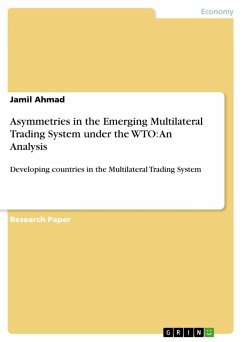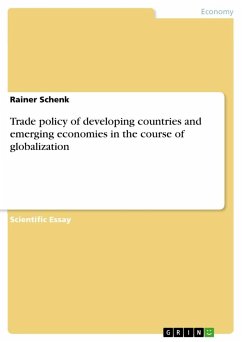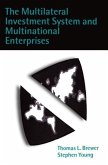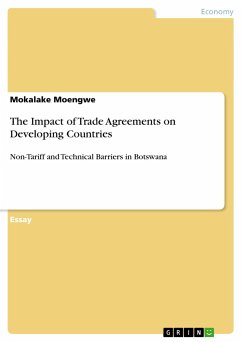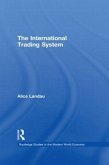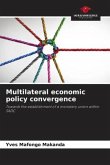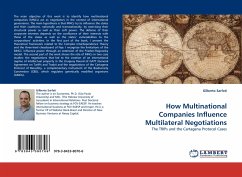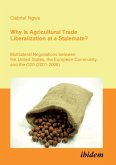Research Paper (postgraduate) from the year 2011 in the subject Economics - International Economic Relations, Aligarh Muslim University (Department of Economics), language: English, abstract: The fundamental principles of the multilateral trading system is to help trade flow as freely as possible, on the one hand, and deal with disputes over trade issues on the other. The expansion of trade has played a dynamic role in the growth of the global economy since World War II. Trade is important for the development of all types of economies. But its sustained growth calls for a free and fair Multilateral trading system. A trading system that is rule based helps in the expansion of trade. Similarly, a trading system that lowers trade barriers through negotiations and applies the principle of non-discrimination promotes trade from developing countries. Further, the trading system that allows disputes to be settled effectively and constructively has the added advantage for the developing countries. The world trading system under the WTO promises all but its working over the past years since its establishment has revealed that the pace and pattern of implementation by different member countries have not been uniform. More powerful players in the trade space have evolved many new instruments of safeguarding their national interest while the weaker players have been forced to implement their commitments. This has generated asymmetries in the pattern of effective market access in the different countries of the world economy.In the light of the above, our objective in this study is primarily to examine the role of Multilateral trading system under the WTO in promoting international trade of developing countries in general and that of India in particular. The purpose of this paper is (a) to discuss the importance of trade and trading system for developing countries in general and India in particular (b) to discuss the asymmetries exist under the WTO which effect the development process of developing countries adversely, and (c) to suggest ways and means as to how India and other developing countries can maximize the gain and minimize the losses from its membership of the world trade organization under the globalize era.Keywords: Trading System, WTO, Developing Countries, Indian Economy.
Hinweis: Dieser Artikel kann nur an eine deutsche Lieferadresse ausgeliefert werden.
Hinweis: Dieser Artikel kann nur an eine deutsche Lieferadresse ausgeliefert werden.

